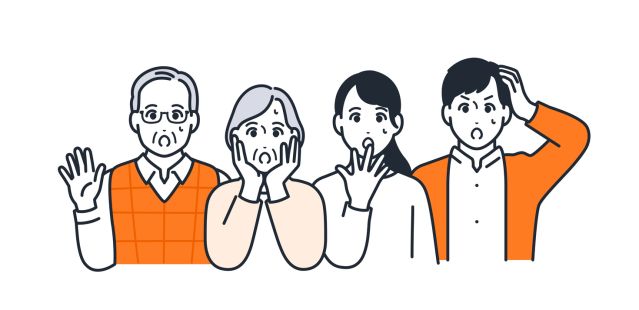Anxiety
Coping With Chronic Anxiety in a Family
How anxiety is contagious and what you can do about it.
Posted April 22, 2024 Reviewed by Monica Vilhauer
Key points
- Chronic anxiety can become contagious within a family system.
- Chronic anxiety in a family can manifest in various ways, affecting both individual and collective well-being
- Anxiety leads to conflicts, a breakdown in communication, and patterns of avoidance or overinvolvement

In the dance of family dynamics, emotions are felt and shared, often mirroring the game of hot potato. Anxiety, like a scorching hot potato, is tossed from one family member to another. No one wants to hold it for long, yet it keeps getting passed around, increasing in temperature with each toss. This metaphor illustrates how anxiety, especially chronic anxiety, can become contagious within a family system, affecting not just one individual but the collective well-being of the family.
Consider the Thompson family, where the mother, Linda, suffers from chronic anxiety. Her constant worry about finances, health, and the future creates a tense home environment. Her husband, Mark, starts to feel the strain, becoming more irritable and less communicative. Their children, sensing the tension, react in kind. The eldest becomes withdrawn, the middle child acts out, and the youngest develops anxiety around school. Like the game of hot potato, anxiety has been tossed around, and each family member has been affected, demonstrating the contagious nature of chronic anxiety within a family system.
Chronic anxiety in a family can manifest in various ways, affecting both individual and collective well-being. It can lead to increased conflicts, a breakdown in communication, and patterns of avoidance or overinvolvement in each other's lives. Some family members may take on the role of the "anxiety absorber," trying to manage or mitigate the anxiety of others, often at the cost of their own mental health. Others might withdraw to protect themselves from the family's emotional turmoil. These dynamics can create a cycle of anxiety that perpetuates itself, making it difficult for the family to find equilibrium.
Strategies to Manage and Reduce Anxiety Within the Family Context
1. Open Communication: It's important to encourage honest discussions about feelings and concerns within the family. This can help to break the cycle of anxiety, as it brings it out into the open rather than allowing it to be a silent disruptor. When communicating openly, it's essential to focus on solutions and how to move forward, instead of complaining or trying to make others feel bad because you are hurt or something didn't go your way.
2. Establish Boundaries: Setting healthy family boundaries can help manage anxiety. This means respecting each other's need for space and privacy while ensuring that support is available when needed. If you find that a conversation is not going in a positive direction and causing anxiety, it is okay to end the conversation and pick it up at a later date.
3. Practice Calmness: Be a model of calm behavior. Anxiety can be contagious, but so can calmness. Practicing and displaying calmness in times of stress can help reduce the family's overall anxiety level.
4. Seek Collective Activities: Engage in activities that promote togetherness and relaxation, such as family walks, game nights, or mindfulness exercises. Shared positive experiences can counteract the effects of anxiety.
5. Professional Support: Sometimes, a professional therapist or counselor may be needed. They can provide strategies tailored to your family's specific needs and facilitate healing in ways that might be difficult to achieve on your own.
6. Education: Educate yourselves about anxiety. Understanding its mechanisms, triggers, and manifestations can empower you and your family to recognize and address it effectively.
7. Self-Care: Encourage individual self-care practices for each family member. Taking responsibility for one's mental health can contribute significantly to the family's well-being.
8. Self-Regulation: Teach and practice self-regulation techniques within the family. Skills such as deep breathing, mindfulness, and positive self-talk can help individuals manage their responses to anxiety-inducing situations. Encouraging family members to recognize their emotional states and regulate their reactions can promote a sense of control and resilience against anxiety.
Coping with chronic anxiety in family systems requires a concerted effort. It's about transforming the game of hot potato. Instead of tossing the anxiety around, you work on regulating yourself to cool it down. By implementing strategies that promote open communication, understanding, and mutual support, families can create a more peaceful, less anxious environment that nurtures the well-being of each member.
To find a therapist, visit the Psychology Today Therapy Directory.




